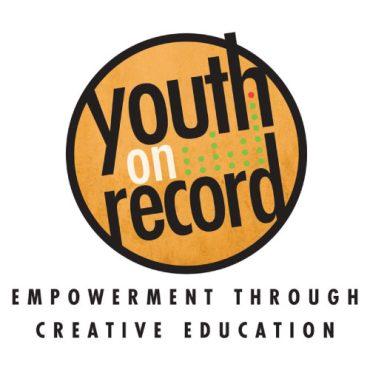Featured image: Nohra Padilla, recipient of the 2013 Goldman Prize, Asociación de Recicladores de Bogotá (ARB)
-
 play_arrow
play_arrow
Radio Documentary: Environmental Leadership From the Grassroots KGNU News
FLOWS stands for The Foundations for Leaders Organizing for Water and Sustainability. It’s a program at the University of Colorado Boulder offering green job skills training and sending teams out into affordable housing communities to discuss sustainability practices and install free energy and water upgrades.
FLOWS is an incredibly diverse group and mostly made up of people of color.
Michelle Gabrieloff-Parish, founder of FLOWS and the Energy & Climate Justice Manager at the University of Colorado Boulder’s Environmental Center, cued up a batch of videos and as the group of around 12 found their seats she explained how the footage they were about to see fits with FLOWS’ mission.
“Underrepresented communities often are environmental leaders but we’re not really recognized as such. I’ve really been trying to work on trying to change the narrative that to be an environmentalist and to be leaders in sustainability is to be elitist, high income or white or a guy. So, part of the idea of today and really part of the idea of FLOWS from the beginning was highlighting the leadership of underrepresented communities, low-income communities, diverse groups of students and diverse groups of community members.”
The videos Gabrieloff-Parish was about to play told the stories of Goldman Environmental Prize winners. The Goldman Environmental Prize has honored environmental heroes from every corner of the globe since 1990. Like FLOWS, the Goldman Prize supports grassroots leadership from all over the world and from a variety of social backgrounds.
The fact that FLOWS and the Goldman Prize are lifting up diverse hero and she-roes in the environmental movement seems unique but Michelle says that’s a misconception.
“This isn’t actually unusual what we’re doing. The narrative is that it’s unusual. And it may be that it’s unusual in Colorado or in Boulder but globally this is what this movement looks like,” said Gabrieloff-Parish.
Nohra Padilla won a Goldman Prize in 2013 for her recycling leadership in Bogotá, Colombia. Michelle explained why she decided to show Padilla’s story.
“Especially in the U.S. when people think about sustainability one of the main things they think about is zero waste and that means such different things in different communities and people practice it for such different reasons. Really all of us ancestrally were living in this in this way. So, I just love this different take and then also what this woman went through for her to practice this.”
According to the Goldman Environmental Prize website, Padilla was chosen as an award winner for being, “Unfazed by powerful political opponents and a pervasive culture of violence” and organizing “Colombia’s marginalized waste pickers to make recycling a legitimate part of waste management.”
You can read the full description of Padilla’s accomplishments on the Goldman Environmental Prize website here.
After the video of Padilla’s story ended, Gabrieloff-Parish lead the FLOWS technicians through a discussion about the highlights of Padilla’s work and the intersection between environmental and social justice.
Angela Maria Ortiz Roa was the first to speak saying, “I grew up seeing these people in the streets. I just always thought it was people trying to be resourceful and trying to make a living. I didn’t really understand how important they were in the system that I lived in. My mom always kind of made me very aware of how we dispose of things and was very thoughtful that maybe people could get hurt…because all these people are sticking their hands in [our trash].”
“That sort of speaks to too that in some communities, especially in the U.S., recycling is seen as this elitist thing but in a lot of lower income communities, even in the U.S. and definitely around the world, recycling is sometimes associated with the opposite,” said Gabrieloff-Parish.
Next, FLOWS member Remi Ruyle added, “I also liked how in this video one of the key hallmarks was people protesting in the street, marching for their communities…I like that because it shows the connection between social activism and the environment.”
Gabrieloff-Parish responded saying, “Ya, hopefully you start to see this theme of is this environmental or is this social, is this social or is this environmental. It’s kind of ridiculous to try to figure out which one it is. It’s all connected for so many people.”
Magnolia Landa-Posas then highlighted the importance of education in successful community organizing around environmental protection. She spoke to the skill involved in learning to be heard while also working within existing institutions. Landa-Posas also pointed out the benefit of creating parallel institutions like Padilla and her allies did, “creating an assembly where could benefit opposed to one.”
Gabrieloff-Parish followed up on Landa-Posas’ comments saying, “This is a community that is considered to be disposable and worthless and not a community that’s full of knowledge… I think the interesting thing with [Padilla] talking about how they were referred to as disposable is that this has been part of the conversation in the U.S. as well and idea that your worldview shows up in a lot of the ways that you do many different things and that we have a culture that does have this disposable mentality and we are willing to have so many things be throw away that it makes sense that this person has a lot of people that we also consider throw away people. We have heard some communities talk about how the incarceration rates especially for young black males but also in growing numbers for women and Latinos and Native Americans is so big that it also reflects the same part of our culture that’s willing to use something once and throw it away. So, it makes sense that there are more inmates [here] than anywhere else in the world and it makes sense that there’s amazing resources like this that could be propping up our community and could be helping us and instead they’re put into this place were they become toxic.”
The conversation then focused on how much more favorable conditions in the western world are for environmental change compared to places like Colombia. A fact that should inspire the local sustainability movement. The group also analyzed the history of violence against environmental activism and the activist themselves.
Over the course of the workshop, the FLOWS eco-leaders went on to hear the stories of other powerful, even if lesser known, role models in the environmental movement and reflected on those stories. At the end of the meeting, FLOW members including Elizabeth Achulo and Swapnil Kumar, expressed just how inspirational it is to hear about, meet and join with diverse leaders, including low-income and minority eco-leaders, from other FLOWS members to Goldman Prize winner, to the everyday marginalized sustainability masters down the street.
As resources become more scarce and the climate change crisis intensifies, inspiring more people with novel sustainability knowledge is more important now than ever before. FLOWS leaders are ready to shake up the environmental movement status quo and provide the push for climate health and justice so desperately needed to avoid ecological catastrophe.
-
 play_arrow
play_arrow
Radio Documentary: Environmental Leadership From the Grassroots KGNU News
Podcast: Play in new window | Download

















